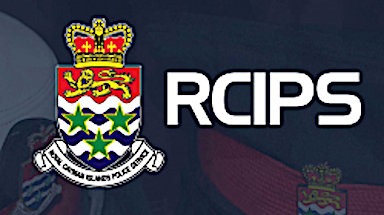Cayman Islands Coast Guard Officers Complete Junior Leadership & Transition Course (JLTC)

Wednesday the 26th of May 2021 saw the culmination of six weeks of intensive training designed to introduce existing members of the RCIPS Joint Marine Unit (RCIPS JMU) as well as four young Coast Guard Recruits to the standards of leadership, discipline and operating procedures which are followed by the Cayman Islands Coast Guard (CICG).
The course was designed to develop and enhance the technical aptitude and abilities of its participants while ensuring that their personal and professional attitude was in keeping with the mission, vision, ethos of the CICG.
“By ensuring from early on, that our Junior and Senior Non-Commissioned Officers (NCO) possess both the right personal & professional attitude and aptitude, we ensure that we are building a “World Class†Coast Guard of which the Cayman Islands will be proud†says Commander Scotland.
Over the past six weeks under the guidance and instructions of Petty Officer Dwight Hunter and PC Adrian Clarke, course participants covered topics including but not limited to: Bridge watch keeping & management, vessel contact reporting, marine search and rescue, radio voice procedure, international laws of the sea, international regulations relation to the prevention of collision of vessels while at sea, various method of instructions, incident command systems and impromptu speaking. All of which are vital when leading a team of officers on a nearshore or offshore patrol.
As a Uniformed & Disciplined entity, that will be closely aligned to both local and regional law enforcement departments, as well as Coast Guard and Naval entities, participants also received instructions in: naval terminology, naval etiquette and traditions, naval drill, and command tasking’s.
“Throughout this course each of these graduates repeatedly demonstrated the ability to work together as a cohesive unit, both by leading and by following. Each of these officers had to learn to personally adapt, improvise, and overcome innate individualism traits in order to successfully complete any tasking assigned them, not as individuals but as a team†Said Lieutenant Commander Anglin.
Guest speaker at the graduation ceremony Lt Col. E. Brathwaite, Deputy Commandant of the Cayman Islands Cadet Corps, noted that having completed the training course, the graduates had reached a significant milestone in their careers. Their success, he indicated, was timely for the development of the CICG, and he further commended the graduates on their assertiveness, commitment to duty, and hard work during the training. Similarly, he opined that the positive qualities exhibited by the participants during their training should and must be emulated by all those who seek to be leaders in the CICG. Such characteristics, in his view, are most desirable and should be adopted by all young people of the Cayman Islands, whether members of the Coast Guard, RCIPS, or ordinary individuals within the society.
Lt. Col. Brathwaite encouraged the graduates to seize every opportunity to utilise their new skills and to lead by example. He reminded them that their responsibilities were critical in protecting the territorial waters of the Cayman Islands.
In conclusion, Lt. Col. Brathwaite challenged the graduates to effectively and efficiently apply the knowledge and skills gained while discharging their duties. “Remembering always that leadership is a dynamic function, which can make or break individuals and organisations†he pointed out that they are also “ambassadors of the CICG and, by extension, the Cayman Islands Government and that whatever you do, whether on or off duty, must always reflect the highest standards.â€





